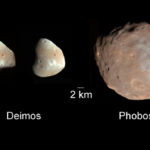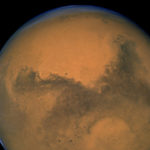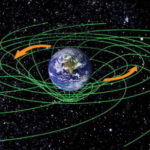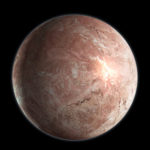Interesting facts about astronomy
 Such a necessary and interesting subject, like astronomy, unfortunately, is not taught in some schools and colleges, and it is in vain. This science allows us to look around, explore the galaxy around us and learn more about the universe in which we live. Astronomical discoveries can rightfully be ranked as the most important and outstanding, and one can only hope that our world will not remain without astronomers.
Such a necessary and interesting subject, like astronomy, unfortunately, is not taught in some schools and colleges, and it is in vain. This science allows us to look around, explore the galaxy around us and learn more about the universe in which we live. Astronomical discoveries can rightfully be ranked as the most important and outstanding, and one can only hope that our world will not remain without astronomers.
The theory of channels on Mars arose due to a translator error. The Italian astronomer Schiaparelli, who discovered them, used in his report the word “canali”, which in his native language could also mean natural channels, for example, river beds or canyons. However, the translation of his work in English was used the word “canals”, which means only man-made channels. By the way, the name Schiaparelli now bears a huge Martian crater, measuring about 400 by 460 km.
Despite the fact that at different times of the year the Earth is at different distances from the Sun, it has almost no effect on our climate. The change of seasons is largely due to the tilting of the earth’s axis. That is why summer comes in the Southern Hemisphere when winter comes to the North, and vice versa. What is interesting, astronomy did not immediately know about it.
The big bang theory got its name due to the fact that for the first time it was used by one of its critics during a performance. However, the sonorous name stuck among all lovers of astronomy, including among supporters of the theory.
Ancient people were interested in astronomy. This is evidenced by relics that are many thousands of years old. They are even older than the Egyptian pyramids. These include, for example, the famous English Stonehenge.
Due to the huge number of amateur astronomers around the world, they still make a really significant contribution to the development of this science.
Among all the sciences, which is interesting, astronomy more than any other was attacked by the Vatican. Officially, the printing of books on the mechanics of celestial bodies was permitted by the Inquisition only in 1822, and the Vatican officially acknowledged that the Earth was round only in 1992.
Only at the beginning of the 20th century, astronomers discovered that our solar system is part of a huge galaxy, which, in turn, is one of many similar ones. This is how extragalactic astronomy originated.
The oldest astronomy is optical. However, modern science pays more attention to the study of space in the ultraviolet, infrared and other spectra.
The famous Hubble orbital telescope orbits around the Earth at an altitude of about 560 km at a speed of about 7.5 km per second.
The entire observable universe is an absolute past relative to us. Many stars located in billions of light-years have long crumbled into dust, but their light has just reached us. Despite the fact that astronomy is interesting as a science, it becomes a little sad because we are looking at something that has not existed for millions and billions of years.



























